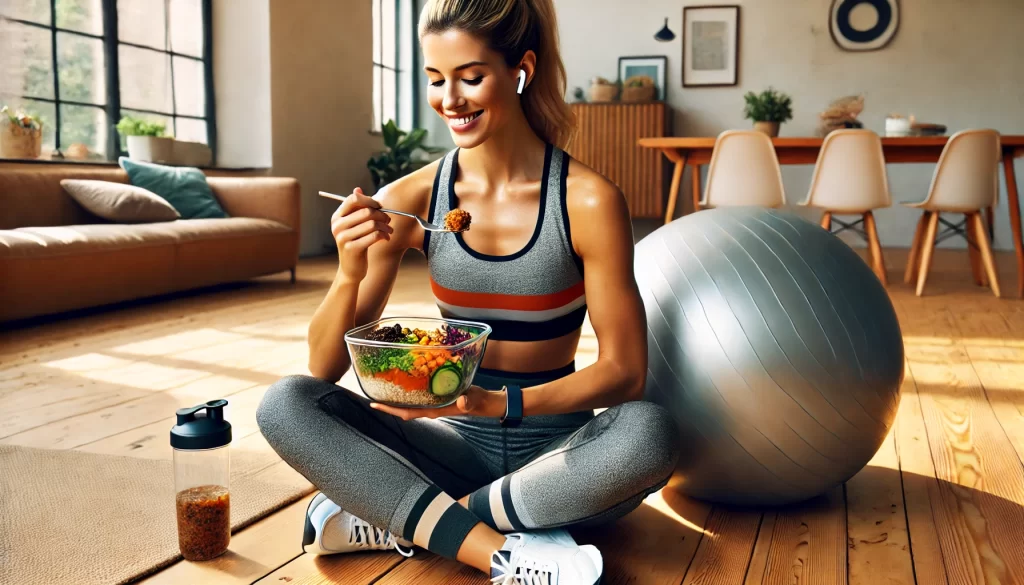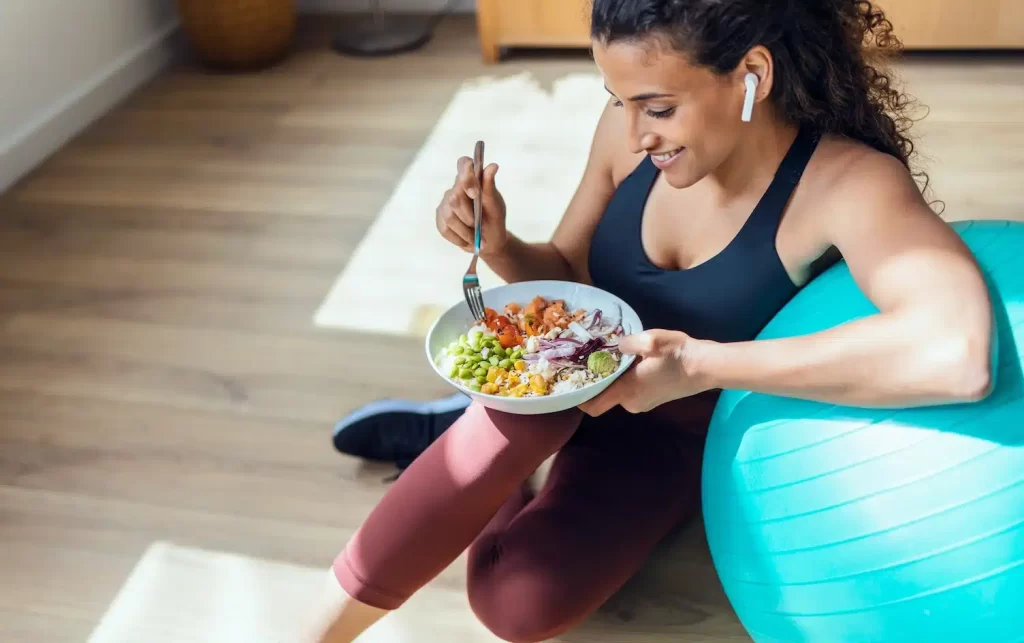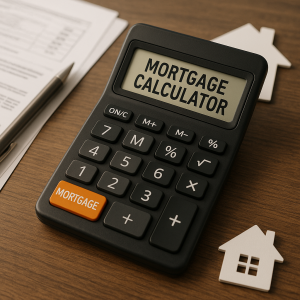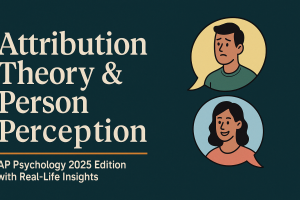If you want to lose weight, reduce your body fat, improve your blood sugar levels, and get stronger, you can’t overlook the importance of eating a balanced diet. However, what you eat isn’t the only part of the equation. It’s important to consider meal timing to help optimize weight loss when exercising.
Since there’s no straightforward answer, it’s not surprising that these are common questions:
- Is it good to eat before or after a workout to lose weight?
- Is it better to work out before or after dinner?
- Should I exercise before or after breakfast?
- Do I need to eat pre-workout meals or pre-workout snacks?
- Should you eat before or after running to lose weight?
The right option for you depends on your health and workout goals. Here’s what you need to know.
Do You Have To Eat Before the Gym?
Eating before a workout isn’t necessarily right or wrong — it all depends on the person. No two people’s bodies are exactly alike, and what they need to do their best at the gym may vary based on their personal goals, overall health, and any medical conditions they have.
The better question might be should you consider working out after eating. One review of the research suggests that exercise done within 30 minutes to two hours of eating has the metabolic benefit of improving insulin sensitivity.
Effects of fasted vs. fed exercise
Some research suggests doing a low-intensity workout before eating may be a good choice if you’re trying to lose weight. That’s because your body is more likely to use stored fat as fuel when working out in a fasted state.
On the other hand, when you exercise soon after eating, your body will use the calories you just took in as fuel. That said, eating protein before or after a workout can also help boost your muscles and give them the support they need to recover.
The take-home here is that exercising in a fasting state might lead to more fat burning in some circumstances, but it may also lead to a lower-quality workout if you haven’t eaten enough to feel energized.
What to eat before a workout to lose weight
To lose weight, your body needs to stay in a calorie deficit. Your pre-workout meal should contain both protein and carbohydrates to make the most of your exercise (with exceptions for people living with some health conditions such as type I diabetes). To optimize your workout, don’t skip carbohydrates since they help fuel glycogen stores and keep you energetic throughout your workout.
As a note, you may want to skip out on fibrous meals before you work out. Fiber-rich foods can be harder to digest, which can make you feel uncomfortable, bloated, or swollen while you’re exercising.

Should You Eat After Cardio?
Eating a meal that’s high in protein and has some complex carbohydrates within a few hours after you exercise can help restore your glycogen stores and provide your muscles with much-needed protein, so you recover properly and are fueled and ready for the rest of your day and/or your next workout.
Post-workout meals to help you reach your goals
The best food after workout completion is something with protein and carbohydrates. Some suggestions include post-workout meals such as:
- Yogurt and fruit
- Fatty fish with healthy amino acids and a carbohydrate such as brown rice
- Turkey on a whole-grain bun with a side of vegetables
- Pretzels and a cup of low-fat chocolate milk
- A post-workout smoothie with protein
The goal is to balance your protein and carbohydrates to boost energy stores after physical activity, so don’t opt for a snack with only one or the other. It’s important to eat protein post-workout to boost muscle protein synthesis and recover stronger, a protein bar can be a great way to fuel up in a hurry.
When to eat after a workout to help support weight loss
When to eat after you work out will depend on the kind of exercise you do. For low-intensity exercise, you don’t typically have to eat after exercising, but stick to your regular balanced meals. Low-intensity exercise includes activities such as jogging or power walking for less than an hour.
For moderate-to-high-intensity workouts, you may want to eat a protein shake or meal within 60 minutes after you finish. These workouts, which include high-intensity competitive sports, endurance training, and weight lifting, require a significant amount of energy. If you don’t eat, you may find it harder to recover from the workout and see muscle breakdown from a lack of stored glycogen in the body. Additionally, you’re more likely to overeat if you wait longer than two hours until your next meal, which will hurt your weight-loss strategy.
Why Does Eating Before or After Workouts Depend on the Person?
There are several reasons people choose to eat before or wait to eat until after a workout. Some people may feel sluggish or nauseous if they eat before they work out. If they drink a lot of water, they may feel it sloshing around as they run or jog, for example.
However, some groups, such as high-level athletes and those taking part in longer-duration workouts likely need to eat before they work out to ensure their bodies have the fuel to complete the exercise at hand.
It’s also important to remember that your health may play a role in your decision. For people with some health conditions, eating before a workout might be necessary. For instance, those with diabetes need to check their glucose levels before working out to ensure they’re within a healthy range. If their levels are too low, then they need to eat prior to working out to ensure they don’t become hypoglycemic.
Ensure Proper Nutrition for Optimal Energy Levels
Eating with a good balance of protein and carbohydrates before and after your workout will help keep you feeling your best while you work on building your muscles and endurance. Don’t skip your breakfast, and remember to eat every few hours to keep your hunger at bay and energy levels up.
MyFitnessPal can help you track your calories and macro-nutrients, so you always have an eye on your intake. It’s the No. 1 global nutrition and food tracking app, designed to help you reach your weight and nutrition goals.







